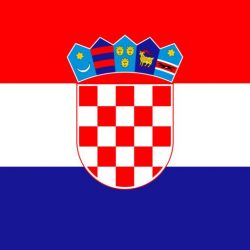Battle of Medak Pocket
In 1993, during the civil war in the former Yugoslavia, Canadian peacekeepers with the United Nations (UN) advanced into disputed territory in Croatia with orders to implement the Medak Pocket ceasefire agreement between the Croatian Army and Serbian irregular forces. Soldiers of the 2nd Battalion, Princess Patricia?s Canadian Light Infantry (2 PPCLI), came under Croatian attack for more than 15 hours. In the firefight that ensued ? the most significant combat experienced by Canadians since the Korean War ? 2 PPCLI held its ground and preserved the UN protected zone. UN Secretary-General Boutros Boutros-Ghali said the Canadian soldiers brought credit to their profession, saved lives, and enhanced the credibility of UN peacekeeping forces.
War in the former YugoslaviaA Canadian armoured carrier, in United Nations markings, patrols a road in the former Yugoslavia during peacekeeping operations there in the early 1990s – (Department of National Defence)
Canadian Peacekeeping in Former Yugoslavia
In the 1990s, UN peacekeeping missions were Canada’s primary overseas commitment, with personnel stationed in more than a dozen countries. After 1992, tens of thousands of Canadians served as soldiers, negotiators, and aid workers in the former Yugoslavia. Following the death of Yugoslav leader Marshal Tito in 1980, and the end of the Cold War in 1989, Yugoslavia?s six republics were divided by the rise of nationalist-separatist groups. Slovenia declared independence in 1991, followed soon after by Croatia and Bosnia. Serbia?s president Slobodan Milosevic tried to restore the federal state under his own leadership, but the resulting Yugoslav wars of 1991-1995 were soon characterized by murderous violence and ethnic cleansing. During this conflict, some 2 million people lost their homes and 200,000 died.
Former YugoslaviaA map of Yugoslavia and its six republics, before the country disintegrated during the civil war of the early 1990s. –

